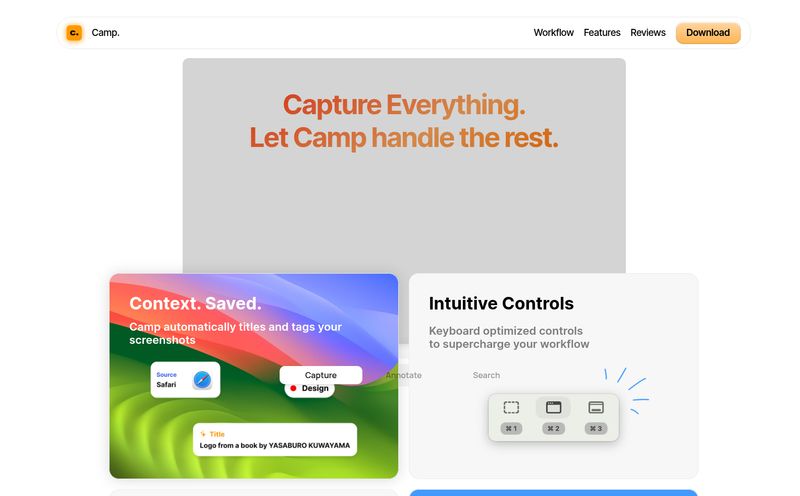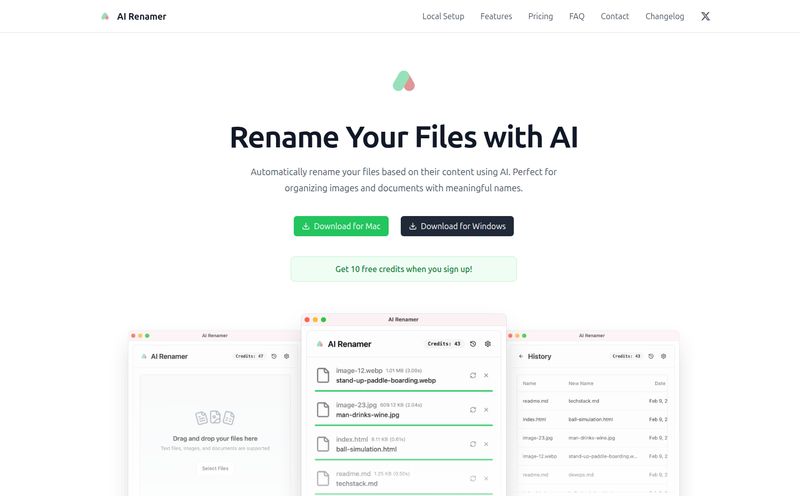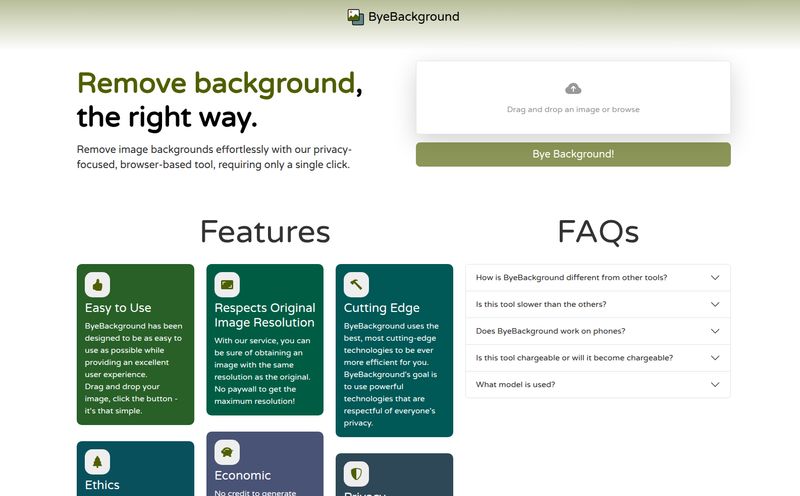You bought security cameras for peace of mind, right? But what you probably got was a phone that buzzes every five minutes because a car's headlight swept across your lawn, a spider built a web over the lens, or the wind decided to have a party in your prize-winning rose bush. It’s the digital boy-who-cried-wolf, and pretty soon, you start ignoring the alerts altogether. That's not security; that's just noise.
I’ve been in the home automation and security game for years, and I’ve seen countless products promise the world. Most of them just end up sending your private data to a server somewhere in who-knows-where. But every so often, a project comes along that just gets it. For me, that project is Frigate NVR.
So, What on Earth is Frigate NVR?
Think of Frigate as an NVR (Network Video Recorder) that went to college, got a degree in computer vision, and came back with a brain. It’s an open-source platform you run on your own hardware, at your own house. Its entire mission is to watch your IP camera feeds and use real-time AI object detection to figure out what’s actually happening.
The most important part? It all happens locally. Your camera feeds aren’t shipped off to a cloud server for analysis. They stay within the four walls of your home. In an age where privacy feels like a luxury, Frigate makes it a standard feature. It’s a bouncer for your digital front door, and its guest list is extremely exclusive.

Visit Frigate NVR
The Secret Sauce: Slashing False Positives with AI
The real magic of Frigate is how it differentiates between meaningless motion and a genuine event. Traditional systems see a change in pixels and scream “MOTION!” Frigate sees a change in pixels, squints, and says, “Hold on, that’s just a shadow. But that… that’s a person carrying a package.”
How? It uses sophisticated AI models to identify specific objects. People, cars, dogs, cats, you name it. This requires some serious processing power, which is why Frigate works best with a little piece of hardware called a Google Coral TPU. This is an AI accelerator—a tiny coprocessor dedicated to running these complex calculations without melting your main computer's CPU. I know, I know, another piece of hardware to buy. But trust me, for the performance you get, it's a small price to pay to silence the noise for good.
“Frigate has helped me reduce hours of reviewing false motion events to seconds and saved me maybe as much time as securing my home from false negatives. I can't stress this point enough, but seriously, zero false detections.” - haggertc, Frigate User
Fine-Tuning with Zones for Pinpoint Accuracy
Frigate doesn't just stop at identifying objects. It lets you draw zones on your camera's view. This is incredibly powerful. You can set it up to only trigger an event if a `person` enters the `driveway` zone, but ignore them if they're just walking on the `sidewalk` zone. Or maybe you want to know when a `car` enters your driveway, but not when it just drives by on the street. This level of control is what separates a smart tool from a simple gadget. You're no longer a slave to the alert; you're the master of it.
A Match Made in Smart Home Heaven: Home Assistant Integration
Okay, for all my fellow home automation nerds, this is where it gets really exciting. Frigate integrates beautifully with platforms like Home Assistant. It doesn’t just send you a notification; it provides a whole suite of sensors and camera entities that you can use to build powerful automations. The possibilities are, frankly, awesome.
Imagine this:
- A person is detected on your porch after 10 PM. Frigate tells Home Assistant.
- Home Assistant instantly turns on the porch lights to 100% brightness.
- It then sends a snapshot from the camera directly to your phone via a notification.
- It even announces “Person detected at the front door” on your smart speakers.
That’s proactive security. It’s all possible because Frigate communicates over MQTT, a lightweight messaging protocol that’s perfect for this kind of real-time data. It’s fast, reliable, and the foundation for a truly intelligent home.
The Good, The Bad, and The Nerdy
No tool is perfect for everyone, and I believe in shooting straight. Frigate is amazing, but you should know what you're getting into.
The Things I Absolutely Love
The privacy-first approach is definately the biggest win. Knowing my camera footage isn't being analyzed by some faceless corporation gives me immense peace of mind. The sheer accuracy of the alerts has transformed my home security from a nuisance into a genuinely useful utility. And being open source means it has a passionate community behind it, constantly improving and adding features. You aren't locked into some company's ecosystem or at the mercy of their next price hike.
The Potential Hurdles to Consider
First, this isn't a simple appliance you buy off the shelf. Setting up Frigate requires a bit of technical comfort. You’ll likely be dealing with things like Docker containers and editing YAML configuration files. It's a fantastic project for a DIY enthusiast, but it might be intimidating if you're looking for a plug-and-play solution. Second, there's the hardware cost. While the Frigate software is free, you need a machine to run it on (like a mini PC or even a beefy Raspberry Pi) and, for the best results, that Google Coral TPU I mentioned. They can sometimes be tricky to get your hands on, but their performance is undeniable.
What's the Deal with Frigate+?
You might see mentions of Frigate+ and a subscription. Let's clear that up. The core Frigate NVR software—the object detection, the Home Assistant integration, the recordings—is and will remain 100% free and open source. Frigate+ is an optional, paid service that adds cloud-based conveniences on top of your local setup. This can include things like a simplified remote access solution, cloud storage for your critical event clips, and support for custom-trained AI models. It’s a way to support the project's development while getting some extra perks, but it is absolutly not required to run a powerful, private NVR.
Is Frigate NVR the Right Choice For You?
So, should you take the plunge? If you're a privacy advocate, a smart home tinkerer, or simply someone who is completely fed up with useless notifications from their security cameras, then my answer is a resounding yes. The initial effort is more than paid back in the quiet confidence you get from a system that just works, intelligently and privately.
However, if the thought of a command line or a configuration file makes you break out in a cold sweat, this might not be the best fit. And that's okay! There are simpler, albeit less private and powerful, options out there. Frigate is for the person who wants to take back control.
Frequently Asked Questions
Do I absolutely need a Google Coral TPU for Frigate?
While you can run Frigate on a CPU, it's not recommended for real-time detection on multiple high-resolution cameras. A Coral TPU offloads the AI processing, allowing for high-FPS analysis without overwhelming your system. For the best experience, a TPU is strongly recommended.
Is Frigate NVR completely free?
Yes, the core Frigate NVR software is 100% free and open-source. You will have hardware costs for a computer to run it on, your cameras, and a recommended Google Coral TPU. The optional Frigate+ subscription adds cloud features but is not required.
What cameras work with Frigate?
Pretty much any IP camera that provides an RTSP (Real-Time Streaming Protocol) video stream will work with Frigate. This includes most major brands like Reolink, Amcrest, Dahua, and Hikvision. It's always a good idea to check if your camera model offers an accessible RTSP feed.
How does Frigate protect my privacy?
Frigate's primary privacy feature is that all video processing and storage happens on your own hardware, inside your home network. Unlike many commercial services, your video footage is never sent to a third-party cloud server for analysis, ensuring you have complete control over your data.
Can I use Frigate without Home Assistant?
Yes, you can. Frigate has its own web interface for viewing events and live feeds. It also integrates with other platforms via MQTT, such as OpenHab and NodeRed. While the synergy with Home Assistant is fantastic, it's not a strict requirement.
My Final Verdict
Frigate NVR isn't just another piece of software. It’s a fundamental shift in how we can approach home security. It hands the power, the intelligence, and the privacy back to you. It finally stops the cameras from crying wolf and turns them into the vigilant, silent guardians they were always meant to be. For anyone willing to roll up their sleeves for an afternoon project, the reward is a smarter, more private, and infinitely less annoying home. And in my book, that’s a massive win.



